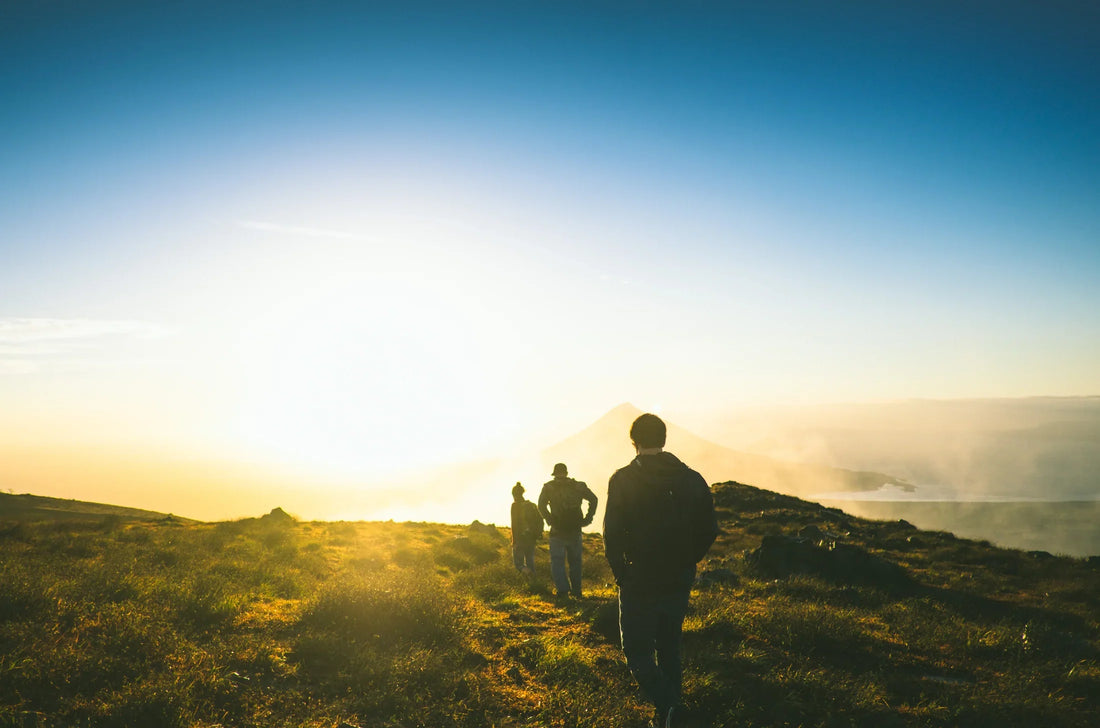
The Life-Changing Benefits of Getting Outside
Share
The Life-Changing Benefits of Spending Time Outdoors
Spending time outdoors isn’t just refreshing—it’s essential for your mental and physical health. Whether it’s a morning hike, a weekend camping trip, or a walk around your local park, the benefits of connecting with nature are profound. Research shows that spending time outside can improve mood, reduce stress, boost immunity, and even promote better sleep.
Despite these benefits, modern lifestyles and urbanization have led to a decline in outdoor time. The Nature of Americans National Report states that half of adults spend five hours or less outside per week, and children are increasingly missing out due to technology use.
Here’s why making time for the outdoors should be a priority.
1. Boost Your Vitamin D Naturally
The sun is the best source of vitamin D, which your skin synthesizes when exposed to sunlight. Vitamin D is essential for:
-
Immune support – It has anti-inflammatory properties that help combat illness (Harvard T.H. Chan School of Public Health).
-
Bone health – Regulates calcium absorption to prevent bone disorders like osteomalacia.
-
Mental health – Low vitamin D levels have been linked to depression (NIH Office of Dietary Supplements).
The amount of sun exposure needed varies by skin tone: those with higher melanin may need 60–90 minutes, while lighter skin may only need 15–30 minutes for optimal vitamin D synthesis. Even small outdoor activities—like reading in the backyard or walking your dog—can provide health benefits.
2. Reduce Stress and Improve Mental Health
Being outdoors lowers stress and supports mental well-being. Studies show that spending time in green spaces or exercising outdoors can reduce the risk of poor mental health by up to 50%.
Outdoor activities to boost relaxation:
-
Outdoor yoga – Connects body and mind while breathing fresh air and appreciating nature.
-
Gardening – Promotes physical activity, sunlight exposure, and stress relief.
-
Forest bathing (Shinrin-yoku) – A mindful walk in the forest reduces heart rate and blood pressure (National Institutes of Health).
3. Strengthen Relationships
Time outdoors can strengthen both romantic and familial relationships. Research during the COVID-19 pandemic found that couples who spent time outside together reported higher well-being and better relationship satisfaction. Outdoor family activities, like hiking, biking, or even water balloon fights, promote bonding, teamwork, and shared memories.
4. Improve Sleep Quality
Getting outside can also enhance your sleep by regulating your circadian rhythm. Natural sunlight exposure helps your body sync with the day-night cycle, improving sleep quality. A study of 377 U.S. women found that afternoon sunlight exposure increased sleep duration and quality.
For a natural reset, consider:
-
Spending more time in natural light during the day
-
Reducing evening screen time to minimize artificial light exposure
-
Going on a weekend camping trip to reset your body’s clock
5. Physical Health Benefits
Spending time outdoors often involves movement, whether walking, running, or hiking, which improves cardiovascular health, boosts cholesterol levels, and strengthens muscles and bones. The combination of sunlight, fresh air, and physical activity provides a holistic approach to health.
Tips for Incorporating More Outdoor Time
-
Take short daily walks in your neighborhood or local park.
-
Schedule weekly hikes or outdoor workouts.
-
Combine social activities with nature—picnics, biking, or outdoor sports.
-
Practice mindfulness outside: sit quietly, breathe deeply, and appreciate your surroundings.
Takeaway
Spending time outdoors is a simple, natural way to improve your health, mental well-being, relationships, and sleep. Even a few minutes a day can make a huge difference. Make outdoor time a daily priority and enjoy the life-changing benefits that nature has to offer.
At Daybreak Cacao, we celebrate the outdoors with our love for natural, energizing products. Our Daybreak Mix is the perfect companion for your morning ritual, giving you sustained energy while you enjoy the fresh air.
